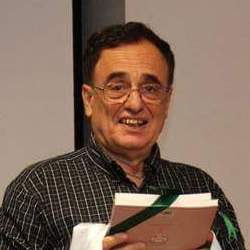Dialectical Method of Nagarjuna: Vigrahavyavartani
with Professor Georges Dreyfus
Only through contemplation may we (slowly) come to develop the Buddha’s understanding of reality: interdependent and empty of inherent existence. Shantideva Center invites you to dig deep into the nature of reality with Professor George Dreyfus as he teaches from a selection of texts by the Indian Buddhist master Nagarjuna. In this three-session teaching on Madhyamaka or “Middle Way” philosophy, Professor Dreyfus gives a primer of Nagarjuna’s wisdom as presented in chapters 1, 13, and 24 of his famous text Mūlamadhyamakakārikā (“Fundamental Wisdom of the Middle Way”). This overview sets the class up to examine Nagarjuna’s other work next, Vigrahavyāvartanī (“The Dispeller of Disputes”). This short but illuminating composition uses a lively question-and-answer format to showcase the irrefutability of the correct view, even under the application of rigorous analysis.
Additional Materials
Recommended Texts:
Nagarjuna’s Middle Way: Mūlamadhyamakakārikā by Mark Siderits and Shoryu Katsura
Other Texts:
The Dispeller of Disputes: Nagarjuna’s Vigrahavyavartani by Jan Westerhoff
Reading Materials Provided by Prof. Georges Dreyfus:
Mūlamadhyamakakārikā by Mark Siderits and Shoryu Katsura
Dialectical Method of Nagarjuna: Vigrahavyavartani by Bhattacharya Kamaleswar et al.
Recordings
About the Teacher
 Georges Dreyfus left his native Switzerland for India in 1970, and soon began studying with Ven. Geshe Rabten, the great scholar-yogin whom H.H. the Dalai Lama had invited to teach the growing number of westerners arriving in Dharamsala. Within one year he took monastic ordination and embarked on the demanding training programme for the degree of Geshe (broadly equivalent to the Western ‘Doctor in Divinity’). As well as studying at the Buddhist School of Dialectics in Dharamsala, he also studied at all three of the great Geluk monasteries of Ganden, Sera and Drepung re-established in India.
Georges Dreyfus left his native Switzerland for India in 1970, and soon began studying with Ven. Geshe Rabten, the great scholar-yogin whom H.H. the Dalai Lama had invited to teach the growing number of westerners arriving in Dharamsala. Within one year he took monastic ordination and embarked on the demanding training programme for the degree of Geshe (broadly equivalent to the Western ‘Doctor in Divinity’). As well as studying at the Buddhist School of Dialectics in Dharamsala, he also studied at all three of the great Geluk monasteries of Ganden, Sera and Drepung re-established in India.
During the fifteen years that his training lasted, Dreyfus studied the great treatises of the Indian Buddhist tradition in the light of their Tibetan commentaries. In 1985 he was awarded the degree of Lharampa Geshe, the highest academic qualification in the Geluk system – the first western student to be so honoured. He subsequently completed both M.A. and Ph.D degrees at the University of Virginia under Prof. Jeffrey Hopkins.
Very much inspired by the spirit of non-sectarianism, Dreyfus has studied extensively outside of the Geluk school where he received his basic training. He studied and practiced Theravada meditation techniques with Munindra and other qualified teachers. He also studied logic and epistemology as well as Madhyamaka philosophy with the Sagya Khenpo Migmar Tsering. He received teachings from both Dilgo Khyentse Rinpoche and Tulku Urgyen, and further studied Madhyamaka and some of the most important texts on Vajrayana practice within the Nyingma tradition with Khenpo Namdrol.
Georges Dreyfus is now the Jackson Professor of Religion at Williams College (MA) U.S.A where he has been teaching courses on Tibetan and Thai Buddhism, Indian philosophy, meditation and cognitive science, religion and science. One of his main areas of interest is the study of consciousness, an interest that he has developed through an association with the Mind and Life Institute. He has furthered this interest through teaching courses such as his “Mind and Persons in Indian Thought,” a course that focuses on Buddhist and Hindu views of the mind and the self, and “The Embodied Mind: Meditative Practices, Mind Sciences and the Philosophy of Mind.” This course brings together cognitive science, phenomenology and Buddhist ideas and practices.


